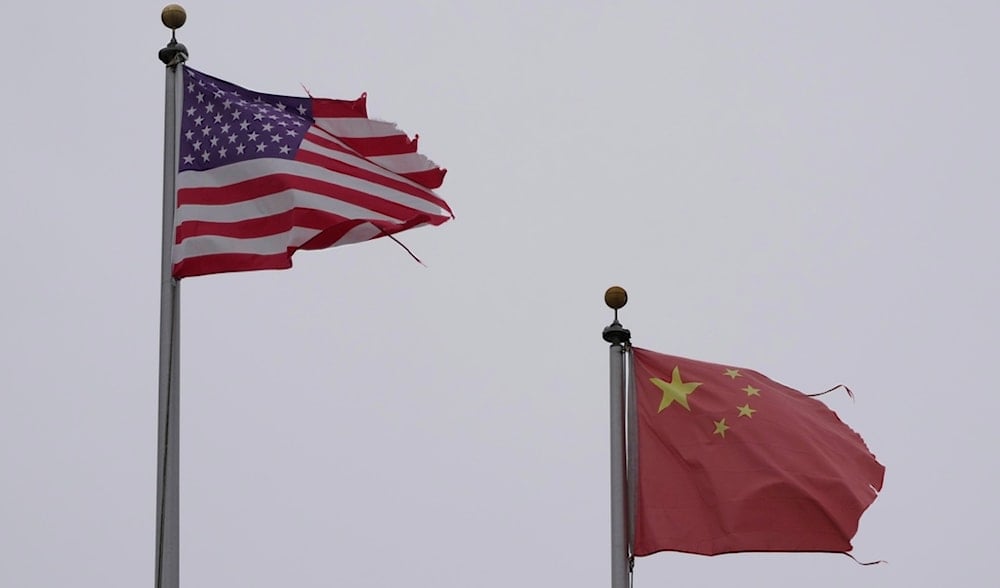China rejects Trump's accusations, says US 'undermining' trade truce
China’s Ministry of Commerce rebukes the US for violating the recent US-China trade truce, criticizing tariffs, tech restrictions, and visa crackdowns.
-

A flag of the United States flies next to a flag of China in Chinatown in San Francisco, Friday, April 18, 2025. (AP)
China accused the United States on Monday of having “severely undermined” the recent US-China trade truce, pushing back against President Donald Trump’s claims that Beijing was not upholding its end of the agreement.
In a statement, China’s Ministry of Commerce called Trump’s accusations “baseless” after he alleged via social media that China had failed to meet its commitments under the deal, which established a 90-day rollback of tariffs and trade restrictions to create space for further negotiations and avoid a full-blown trade war.
Beijing insisted it was honoring the agreement responsibly, and instead accused Washington of engaging in “erroneous practices”, citing a series of recent US moves, which included:
- Restrictions on the sale of chip design software to China
- A ban on American firms from using or funding Huawei’s AI chips
- A planned crackdown on visas for Chinese students, including those from Hong Kong
According to the ministry, "The US side has unilaterally escalated new economic and trade frictions, exacerbating the uncertainty and instability of bilateral economic and trade relations," adding, "Instead of reflecting on its own actions, it has turned the blame onto China."
Beijing warned that it would take necessary measures to "safeguard its legitimate rights and interests" if the US continued to impose new restrictions.
Risks, concerns, and measures
The standoff has raised alarms over access to rare earth magnets, a vital component in the manufacturing of automobiles, semiconductors, aircraft, and other critical technologies. China controls the vast majority of global production of rare earth elements, and US officials are increasingly concerned about the vulnerability of American supply chains.
Without reliable access, American industries may face production slowdowns or disruptions, particularly in high-tech sectors.
Tensions have further escalated over the Trump administration’s tech-related sanctions. Huawei, a major Chinese technology company, has been a central target. New US rules have barred American companies from participating in or financing the development of Huawei’s artificial intelligence chips.
Trump also suspended critical technology exports to China, including jet engines, semiconductors, advanced design software, and specialized industrial equipment, in a move that significantly escalates trade tensions.
Moreover, Washington announced stricter screening procedures for Chinese student visa applications and indicated that it plans to “aggressively revoke” existing visas, measures that Beijing stressed are politically motivated and discriminatory.
Fragile US-China trade truce
The US-China trade dispute, which had temporarily de-escalated with a truce announced on May 12, now appears at risk of collapsing. Under the agreement, the US had reduced its tariffs from 145% to 30%, while China lowered its import duties on American goods from 125% to 10% for a 90-day negotiation window.
US Trade Representative Jamieson Greer, who helped broker the agreement alongside Treasury Secretary Scott Bessent, claimed during a CNBC interview that China was “slow-rolling their compliance.” He added that key mineral flows from China had not returned to expected levels.
With the deadline for a permanent trade accord approaching, both sides now face mounting pressure to resolve long-standing disagreements or risk a renewed escalation.

 3 Min Read
3 Min Read









